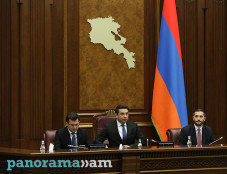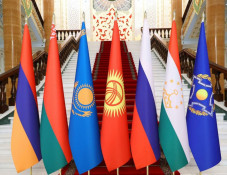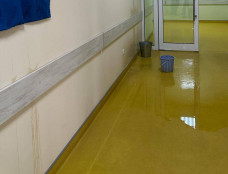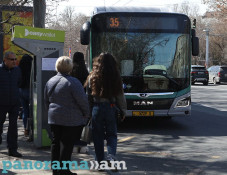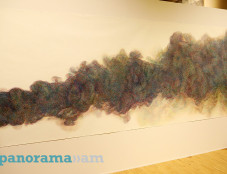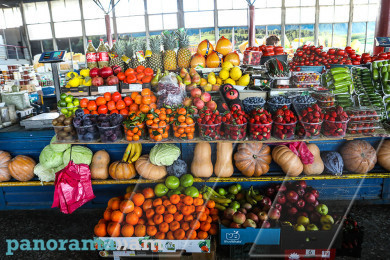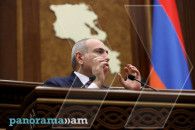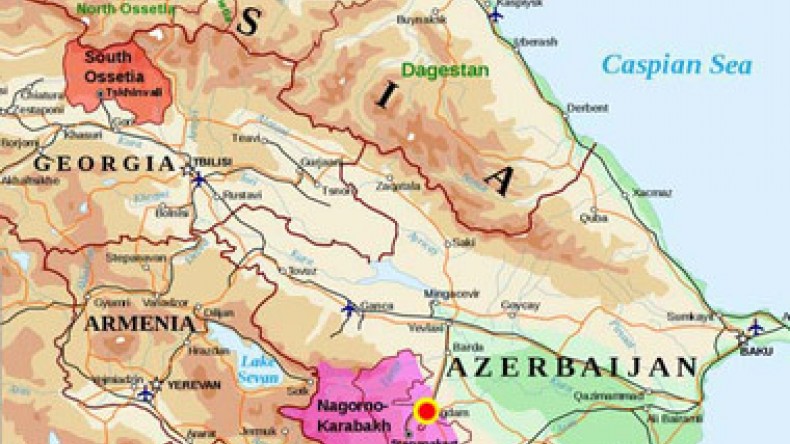
Research: Most intolerant people towards ‘‘foreigners’’ in South Caucasus live in Azerbaijan
From three South Caucasian countries the least people that think that the presence of people from other ethnic groups is a cause of insecurity are in Armenia. Georgian population mainly trusts their neighbors of other nationality. In Azerbaijan on the contrary they trust the neighbors depending either on their nationality or belief. These are the figures of the research carried out by CAUCASUS BAROMETER, which can be found on Kavpolit.ru.
The article notes that the titular ethnicities in Armenia, Azerbaijan and Georgia form a clear majority (98%, 91% and 84%, respectively).
In Georgia 6.5% of the population is ethnically Azeri and 5.7% is ethnically Armenian. In Azerbaijan the Lezgins make 2.2% and the Talesh comprise 3.3% of the population (including those who straddle the border with Iran). Armenia is the most ethnically homogenous of the post-soviet countries with a small Yezidi Kurdish population (1.3%).
The LIT survey asks, “To what extent do you trust people from the following groups: Your family, your neighborhood, people you meet for the first time, friends and acquaintances, people of another religion and people from another nationality?” 43% of Georgians say they trust people from another nationality, 23% distrust, and 29% neither trust nor distrust. 14% of Armenians trust, 50% show lower level of trust, 37% do not give much importance to nationality and beliefs of their fellows. In Azerbaijan the level of trust is much lower. Only 17% trust people from another nationality, 57% say they distrust people from another nationality and only 26% do not give much importance to the nationality.
30% of Georgians agreed that people from other ethnic groups enrich the cultural life of their country, 34% disagreed, 19% neither disagree nor agree. And 17% noted they didn’t care. 20% of respondents in Armenia agreed that people from other ethnic groups enrich the cultural life of their country, 41% disagreed, 16% of respondents stated they were neither disagree nor agree, and 23% noted they didn’t care. In Azerbaijan 25% gave a positive response to this question, 39% disagreed, 18% were neither disagree nor agree, 19% said they didn’t care.
Only 20% of Armenians that the presence of people from other ethnic groups is a cause of insecurity, 31% of Georgians and 24% of Azerbaijanis think this way. 37% of Armenian respondents think that presence of people from other ethnic groups is not a cause of insecurity. There are 25% of Georgians and 35% of Azerbaijanis thinking this way.
42% of Georgians believe that the presence of people from other ethnic groups increases unemployment. 23% of Armenians and 38% of Azerbaijanis say the same. In Armenia 36% think that the presence of people from other ethnic groups does not increases unemployment. 23% of Georgians and 29% of Azerbaijanis think the same way.
As the publication notes that at the background of the Karabakh conflict 0% of Azerbaijanis approve of doing business with Armenians. However 32% of Armenians are open to doing business with Azerbaijanis. 39% of Armenians also approve of trade with Turks, which have the highest approval rating for business among Azerbaijanis (92%).
Georgians take the middle ground with more or less 75% willing to engage in business with most of the groups listed. Despite the recent conflicts, Georgians are rather accepting of doing business with Abkhazians (74%) and Ossetians (73%). In the same time only 70% are ready to do business with the Armenians and 74% with the Azerbaijanis.
Russians are well-perceived by 85% of Armenians, 81% of Azerbaijanis and 84% of Georgians, while Kurds get the lowest ranking 60%, 48% and 60%, respectively.
Number of Azerbaijanis who are ready to do business with Armenians grew from 46% to 70%, with Georgians from 44% to 74%, with Greek 34% to 63%, with Russians from 62% to 81%. In Georgia, approval for business with Russians increased from 76% to 84% and decreased from 75% to 65% for Turks.
32% of Armenians are open to doing business with Azerbaijanis, 39 with Turks, 68% with Georgians, 69% with Greeks, 74% with Americans, and 85% with Russians.
Newsfeed
Videos







